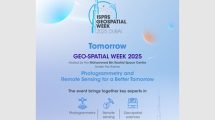
Rwanda Space Agency (RSA) and China’s STAR.VISION Aerospace Limited (STAR.VISION) have announced the successful completion of the Algorithm Rideshare Programme aboard satellite WJ-1A. In March 2023, RSA and STAR.VISION signed a memorandum of understanding (MoU) to collaborate on developing and deploying AI algorithms to assess land use and generate statistics automatically.
A team of six students from Rwandan universities, including the University of Rwanda, Carnegie Mellon University Africa, and the African Institute for Mathematical Sciences, worked under the mentorship of RSA engineers to bring this project to life. The algorithms enable the satellite WJ-1A to process images independently, eliminating the need for data downloads and facilitating real-time land usage assessment.
The achievement underscores Rwanda’s dedication to advancing AI and machine learning into space-related activities.
Speaking on the occasion, Col. Francis Ngabo, CEO of RSA, said: “With the necessary guidance, we have challenged young students from academic institutions we have partnered with to develop satellite-based algorithms that can address real-world challenges. The result is a Rwandan-developed technology to automatically assess land use from satellites and generate statistics using AI algorithms. We aim to position Rwanda as a key player in space technology and its applications.”
Noor Fan, co-founder of STAR.VISION remarked: “We are proud of the success of our collaboration with RSA. The AI algorithms for automated land use assessment developed by Rwandan talents were successfully tested. I am delighted to announce that this innovation will soon be integrated into one of STAR.VISION’s satellites. We plan to expand our collaboration to drive transformative changes for Rwanda and the global space technology community.”














Add Comment